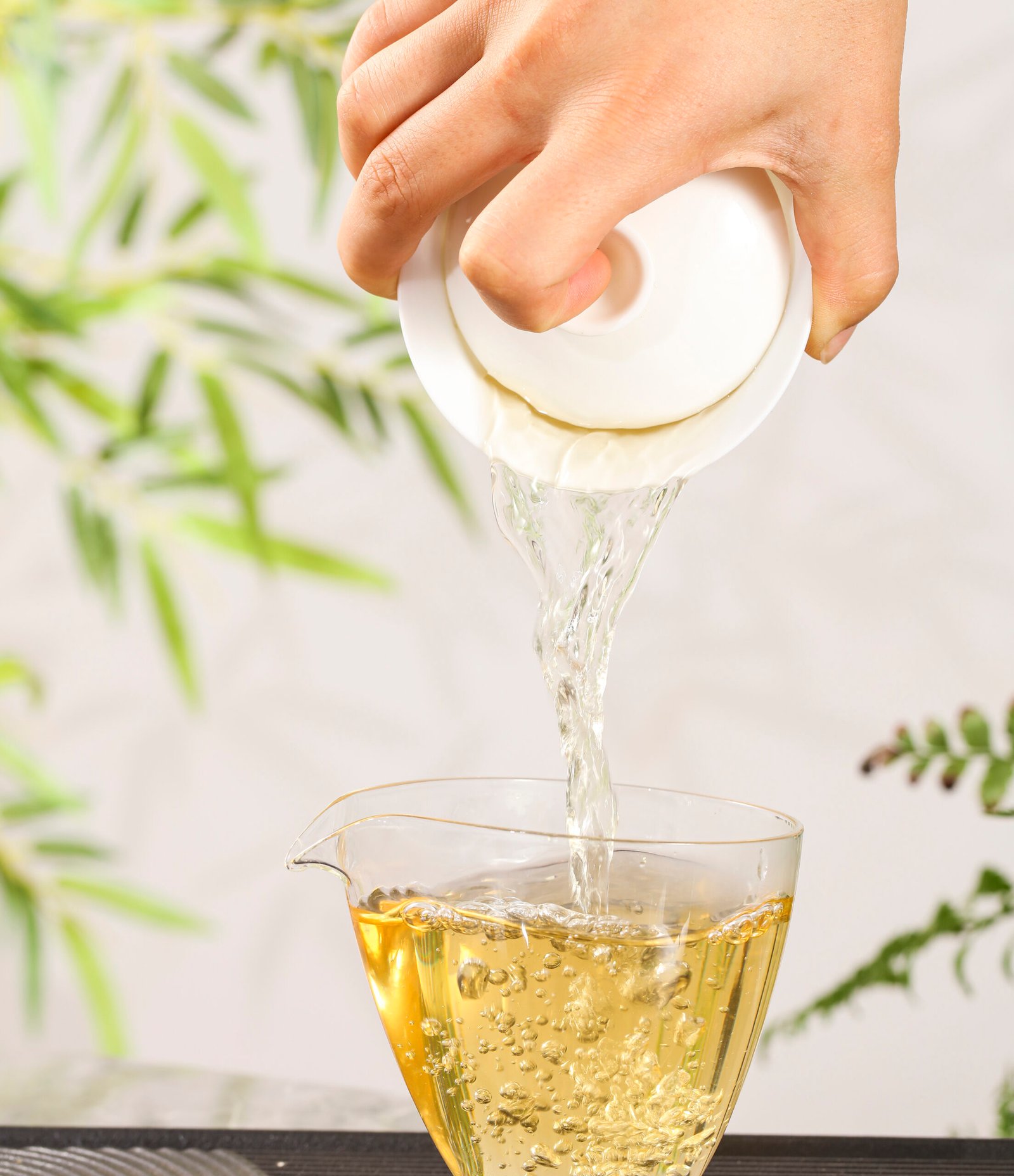Whether or not one should drink tea before, during, or after meals is a controversial topic due to the variety of effects that could occur as a result of its consumption, which is dependent on when it is ingested relative to eating. While it is commonly believed that tea drinking is good for one’s digestive health, it must be acknowledged that the caffeine present in tea can hinder nutrient absorption during digestion. Some stand by drinking tea an hour or two before meals, but others claim that the best time to consume tea is 30 to 45 minutes after eating. So, who is right? This blog will examine the effects of tea on digestion and well-being in relation to food consumption.
To first touch on an effect that tea will have both before and after meals, tea is known to relieve stomach gas and flatulence. In analyzing the effects of tea in relation to food consumption, it is important to note that not all teas will produce the same reaction. Green and herbal teas, specifically ginger tea, are claimed to aid in digestion at a higher rate than all other tea types due to the fact that they contain the highest amount of antioxidants and polyphenols. These polyphenolic compounds are called catechins, and they work to increase the activity of pepsin, a digestive enzyme, that aids in breaking down proteins present in the stomach. Some studies argue that the presence of these phenolic compounds in tea get in the way of iron absorption in the body by forming iron-complexes in the stomach’s intestinal lining. Therefore, doctors recommend the consumption of iron and vitamin C rich foods to tea drinkers in order to combat these iron-complexes, and if one has an iron deficiency, they urge them to steer clear of excessive tea drinking. Despite the complications caused by tea on iron levels, tea does help the digestive system to be more efficient by increasing the production of saliva, bile, and gastric juice, all of which aid in the digestive process. Additionally, tea’s antioxidants serve as anti-inflammatory agents to reduce the risk of digestive complications in the body.

The wonders of tea have been observed since ancient China where it was used to combat high body temperature and the common cold. In regards to digestion, tea helps to keep your throat clear by washing down food, assists in preventing mucus accumulation and breaking down food, and as a result of this assistance, meals will digest faster and with more ease. Tea drinking also plays a role in weight loss as it works to increase metabolism rates when partaken of consistently. Additionally, sipping on a cup of tea while eating a meal slows down one’s appetite preventing overeating which has the potential to be harmful to one’s health. Green tea is the best tea variety for this purpose as it is full of antioxidants. These antioxidants also slow down the rate of aging by flushing toxins from the body, maintaining skin elasticity, regulating blood sugar, and regulating weight in general.
To dive deeper into the effects of tea on digestion and the food consumption process, let’s take a look at the effects of different types of tea on the body. To start, peppermint tea acts to soothe upset stomachs and is occasionally used to help with irritable bowel syndrome (IBS) to prevent the stomach pain, bloating, gas, and other symptoms that are caused by it. Next, Ginger tea contains compounds, like gingerols and shogaols, that stimulates contractions in the stomach to rid waste. Ginger tea also helps with nausea, cramping, bloating, gas, and indigestion. Specifically during pregnancy, chemotherapy, and motion sickness, ginger tea works as a game changer. A polysaccharide present in angelica root tea protects against stomach damage in increasing the amount of healthy cells and blood vessels present in the digestive tract. Dandelion tea contains compounds that promote digestion by stimulating contractions of the digestive muscles that assists food in traveling from the stomach and to the small intestine. Next, the chemical sennoside in senna tea breaks down in the colon and assists in promoting muscle contraction during digestion and bowel movements. Polysaccharides from the marshmallow root in marshmallow root tea, such as mucilage, stimulates the production of mucus to line your digestive tract. Finally, a more common tea that assists the body would be black tea. The thearubigins in black tea improves indigestion while the theaflavins protect against stomach ulcers by acting as antioxidants.
With this knowledge on tea drinking relative to food consumption, one can see that the benefits of tea drinking largely outweigh the disadvantages. When deciding when to drink your tea, think of the desired effects you want it to have on your body, and then make your decision accordingly. Again, if you are iron deficient, be careful about your tea consumption in relation to eating. Overall, tea is a great beverage to pair with meals and snacks as it aids in the digestive process.









